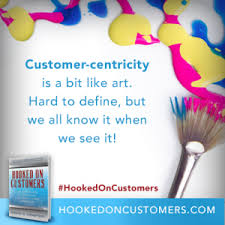There are countless articles, just like this one, that provide ideas and courses of action for organizations to act upon in order to improve their management, operations, fundraising, etc.
Businesses and NGOs alike sit around boardrooms brainstorming different ways to better their operations or communications. And while this discussion is an important and necessary step for effective changes to be implemented, steps must actually be taken to implement changes in order to bring about these desirable results.
NGO directors who operate, manage, or otherwise lead an organization, are constantly looking for different ways to improve donor relations, outshine the competition, and ensure long-term success. These leaders are learning how to put discussions and ideas into action in order to achieve the success they desire.
Hooked on Customers, written by Robert Thompson, is an insightful and informative book that propels businesses into action. It explores successful customer-centric businesses, examines how they execute strategies, and provides practical recommendations for business leaders to more effectively outperform their competition.
While this book is geared towards for-profit companies, much of the content is relatable and very valuable to leaders in the non-profit world. The author shares five overarching points of action that successful customer-centric businesses use when executing strategy. These habits are essential to any leader desiring a strong, healthy relationship with donors. This book is exceptional because it connects words to actions; ideas to movements.
Here are Thompson’s five routine organizational habits:
- Listen to their customers’ values and feedback.
- Think about the implications of fact-based decisions on customers
- Empower employees with the freedom they need to please customers
- Create new value for customers, without being asked
- Delight customers by exceeding their expectations
Perhaps the most important takeaway from Thompson’s five habits is that there are no quick fixes. Building a donor-centric organization takes time, determination, and complete commitment from the entire staff. It must be constantly tweaked and pursued in order for it to become the heart of the organization.
When non-profits are truly donor-centric, they aim to create solutions that meet each customers needs. Though these needs are constantly changing, organizations must dedicate the time and energy to making a commitment to try to understand and improve the donor experience.
It all comes back to the four principles:
- Make it easy for me.
- Add value to my life.
- Customize / personalize my journey.
- Allow me accessibility anytime / anywhere.

